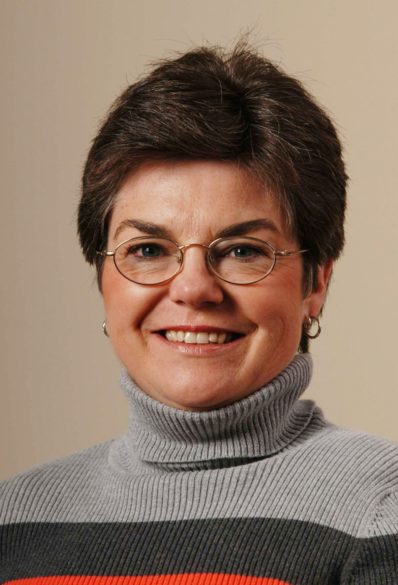FOR THE JOURNEY
By Effie Caldarola (CNS)
My great-grandfather, a refugee from the devastating famine in Ireland, came to Nebraska to farm. Generations later, I grew up on that farm.
I have roots – literal and figurative – in the land he purchased, a very small acreage of which I still own.
These roots help me to identify with the farming images of the Gospel. Jesus lived in a largely agrarian economy.
Sowing, reaping, noticing weeds along the roadside – this was Jesus’s world. He saw sheep grazing on hillsides, fishing boats plying the waters, full measures of grain being pressed into laps.
He knew the familiar smells of manure, and the fishy odor of a catch being unloaded. Jesus lived in an earthy, messy, tactile world.

So, the other day when the Gospel reading was about the man who was harvesting so much grain that he decided to tear down his barns and build bigger ones, I could identify.
I’m familiar with the language of grain prices, yields (how many bushels did an acre produce), the perennial worries about hail and drought.
And I certainly know people who have built bigger barns. We might call that success or business acumen, and sometimes it is.
But in the reading from Luke 12, Jesus couches his story about the rich man who built bigger barns as a story of greed. Why?
First of all, notice how often Jesus rails against hypocrisy and greed. These are the social sins he cares deeply about.
Jesus lived among the poor, in a society that offered no “safety net.” The rich grew richer without fair taxation, a story familiar in America today.
So what’s the problem with the successful farmer? I don’t think his ample harvest is what Jesus decries.
No, instead it’s his attitude toward wealth and his inability to see the bigger picture of his own life.
In Jesus’ parable, the rich farmer dies and is called to account for his life that very night, after his big barns are built and he’s feeling flush. What good is his wealth to him now? All of us will face that day.
Jesus says, “Thus will it be for the one who stores up treasure for himself but is not rich in what matters to God.”
He adds, “Take care to guard against all greed, … for one’s life does not consist of possessions.”
Stuff. We Americans have an enormous amount of stuff, and yet we always want more. We rent millions of storage units for our possessions, and yet we want more.
It’s a spiritual challenge, especially with the excess and consumerism of an American Christmas approaching.
It’s normal to save and plan for retirement. And yet, how often do we obsess about it?
Like the greedy farmer, we yearn to eat, drink and be merry – when we have “enough.” But what is “enough”?
Our church proclaims a “preferential option for the poor.” This term was first used by Father Pedro Arrupe, leader of the Jesuits, in 1968. St. John Paul II wrote of an “option for the poor” in his 1991 social encyclical “Centesimus Annus.” This concept runs throughout Hebrew and Christian Scripture.
Does it run through our lives? Do we vote with this concept in mind? Do we give, not just from our excess, but sacrificially, to the Lord through his poor, first? Do we feed the hungry? Welcome the refugee, like my great-grandfather? Clothe the naked?
When Jesus tells us to “take care,” I think he wants us to understand how short life is and how much better our lives and world could be if we lived simpler, more generous lives in every way.
(Effie Caldarola writes for the Catholic News Service.)
